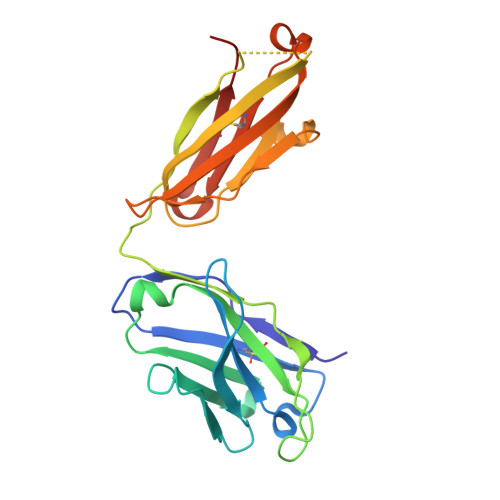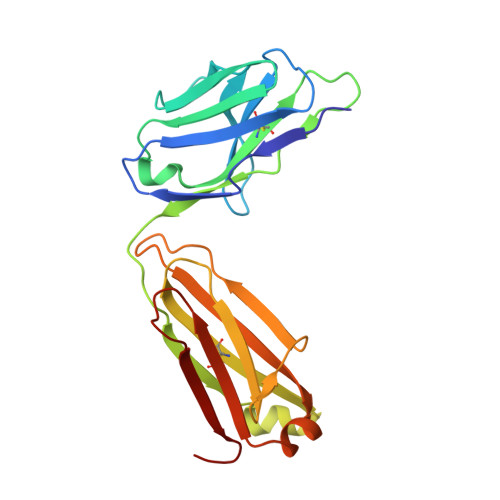High abundance of plasma cells secreting transglutaminase 2-specific IgA autoantibodies with limited somatic hypermutation in celiac disease intestinal lesions
Di Niro, R., Mesin, L., Zheng, N.Y., Stamnaes, J., Morrissey, M., Lee, J.H., Huang, M., Iversen, R., du Pre, M.F., Qiao, S.W., Lundin, K.E., Wilson, P.C., Sollid, L.M.(2012) Nat Med 18: 441-445
- PubMed: 22366952
- DOI: https://doi.org/10.1038/nm.2656
- Primary Citation of Related Structures:
5IT2 - PubMed Abstract:
Celiac disease is an immune-mediated disorder in which mucosal autoantibodies to the enzyme transglutaminase 2 (TG2) are generated in response to the exogenous antigen gluten in individuals who express human leukocyte antigen HLA-DQ2 or HLA-DQ8 (ref. 3). We assessed in a comprehensive and nonbiased manner the IgA anti-TG2 response by expression cloning of the antibody repertoire of ex vivo-isolated intestinal antibody-secreting cells (ASCs). We found that TG2-specific plasma cells are markedly expanded within the duodenal mucosa in individuals with active celiac disease. TG2-specific antibodies were of high affinity yet showed little adaptation by somatic mutations. Unlike infection-induced peripheral blood plasmablasts, the TG2-specific ASCs had not recently proliferated and were not short-lived ex vivo. Altogether, these observations demonstrate that there is a germline repertoire with high affinity for TG2 that may favor massive generation of autoreactive B cells. TG2-specific antibodies did not block enzymatic activity and served as substrates for TG2-mediated crosslinking when expressed as IgD or IgM but not as IgA1 or IgG1. This could result in preferential recruitment of plasma cells from naive IgD- and IgM-expressing B cells, thus possibly explaining why the antibody response to TG2 bears signs of a primary immune response despite the disease chronicity.
Organizational Affiliation:
Centre for Immune Regulation and Department of Immunology, University of Oslo and Oslo University Hospital-Rikshospitalet, Oslo, Norway.















